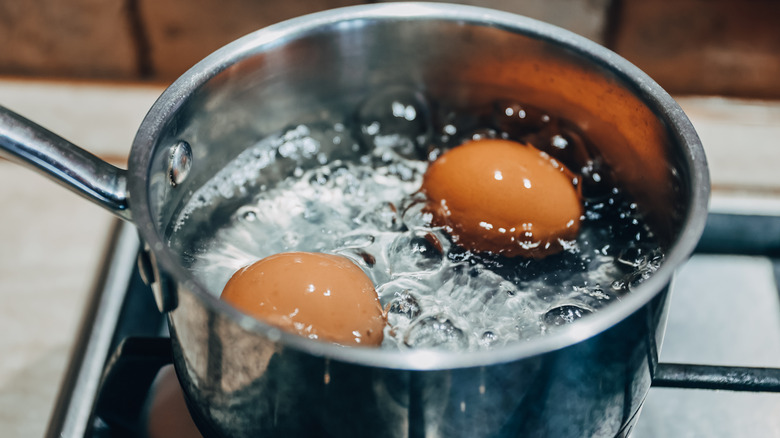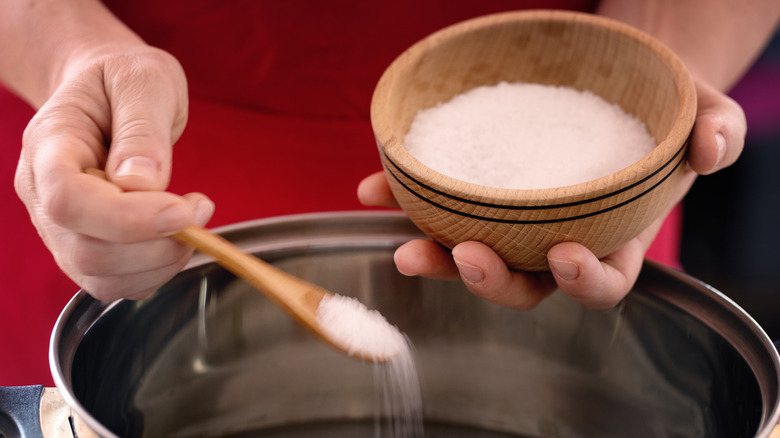Reach For The Salt To Prevent Hard Boiled Eggs From Leaking
The task of hard boiling an egg is a basic cooking skill that nearly everyone knows how to do. Yet, everyone has their own preferred method of doing it. But regardless of how you boil them, all of us have experienced the problem of the eggs cracking open and leaking during cooking. Not only does this lead to an unattractive-looking egg, but it's harder to peel, and the boiling water turns all mucky. There are a few ways you can prevent cracks and leaks from happening, but one of the easiest is to reach for the salt on your counter.
Much in the way that pasta water needs to be salted for the best outcome, so too does the water for your hard-boiled eggs. The aggravating cracks and leaks that happen are due to the eggs being heated too rapidly. The air pocket at the base of the egg expands during cooking and if this happens too fast, it cracks the shell open and allows some of the egg whites to escape.
Now, if you're cooking in unsalted water, the cracked egg is going to leak copiously before the egg white cooks enough to solidify. If you're cooking in salted water, however, the opposite occurs. The salt solidifies the egg whites on contact, sealing up the crack and allowing the egg to continue boiling as if nothing happened. But how, exactly, does this work?
How does salt solidify egg whites?
Salt acts in a similar manner to heat in that it denatures the proteins in the egg whites. When raw, egg whites are a rather viscous liquid. When it is cooked, it solidifies and is able to encase the yolk within itself. You can see an example of how this works when you fry or poach eggs.
Think of salt as an insurance policy. While the heat of the boiling water will eventually solidify the leaking whites, salt enables the solidification to happen far earlier in the process. The amount of salt you add to the water depends on how many eggs you're planning on cooking. You don't need much. A teaspoon of salt per 8 cups of water is enough to save 8 eggs from becoming deformed globs.
Adding salt is an easy extra step that is going to save you a lot of headaches. Several recipes also recommend adding vinegar to the boiling water, as you would with poached eggs. This is additional insurance against leakage, as acids work similarly to salt and heat in their denaturing capabilities. Still, you're more likely going to have salt on hand than you are vinegar. So, reach for the salt. Your hard-boiled eggs will thank you.

